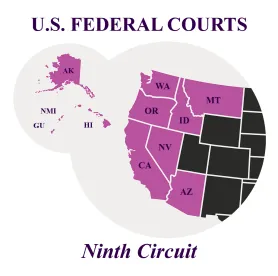On August 18, 2023, the United States Court of Appeals for the Ninth Circuit upheld a district court order adopting the Federal Energy Regulatory Commission’s (FERC) interpretation of the statute of limitations applicable to enforcement proceedings resulting in a civil penalty under the Federal Power Act. In FERC v. Vitol, No. 22-15584 (9th Cir. Aug. 18, 2023), the circuit court ruled that the five-year limitations period applicable to affirming FERC’s penalty assessment under the Federal Power Act (FPA) begins to run when FERC assesses the penalty, not when the unlawful trading at issue occurs.
In 2019, FERC assessed a civil penalty against Vitol for $1,515,738 and against one of Vitol’s traders for
$1 million, plus disgorgement of certain profits, based on trades that occurred in 2013. When neither Vitol nor the trader paid the penalties, FERC filed a complaint in federal district court to enforce its assessment of civil penalties under 16 U.S.C. § 823b(d)(5).
Vitol moved to dismiss, claiming that the general statute of limitations under 28 U.S.C. § 2462 had expired because more than five years had elapsed between the date of the unlawful electricity trades at issue and FERC’s initiation of the district court action. (The FPA does not have its own statute of limitations.) FERC responded that Vitol’s argument conflates the two limitations clocks under Section 2462. The first clock required FERC to issue a notice of proposed penalty within five years of the wrongdoing. FERC timely issued such a notice because the parties agreed to toll the statute of limitations for one year.
A second five-year clock began to run when FERC assessed a penalty and its claim to affirm that penalty accrued. FERC’s complaint to enforce Vitol’s payment of its civil penalty assessment was initiated well within that five-year period. The district court agreed with FERC and denied Vitol’s motion to dismiss, finding that FERC’s claim did not accrue until FERC concluded its administrative proceedings and issued its order assessing civil penalties.
On appeal of the district court’s ruling, the Ninth Circuit examined when FERC’s claim “accrues.” The court found that a cause of action for affirming FERC’s assessment of a civil penalty did not accrue until FERC had assessed the civil penalty. “Only then does the cause accrue, so only then does the statute of limitations begin to run.” Slip op. at 9. The decision rejected Vitol’s attempt to frame FERC’s claim as the enforcement of a violation of the anti-market manipulation provisions of the FPA and FERC’s regulations, thereby tying the running of the five-year limitations clock to the unlawful trades.
The court further noted that its ruling was consistent with the Fourth Circuit’s decision in FERC v. Powhatan Energy Fund, LLC, 949 F.3d 891, 899 (4th Cir. 2020). Only the Fifth Circuit, in a decision under the Export Administration Act, has found differently. U.S. v. Core Laboratories, Inc., 759 F.2d 480, 482 (5th Cir. 1985). In Vitol, the Ninth Circuit both disagreed with the Fifth Circuit decision and explained that court’s reasoning was limited to that particular statute and therefore irrelevant to the FPA provision. Id. at 14-15.
The court also rejected Vitol’s argument that FERC’s assessment of a civil penalty was not a “proceeding” triggering its own limitations clock. The court relied on the text of FPA § 823b(d)(3)(B), which “makes clear that FERC’s cause of action in court does not accrue until that [administrative] process culminates and FERC assesses a penalty.” Id. at 16. The court noted that Vitol filed with FERC a 96-page answer along with 100 pages of exhibits in response to FERC’s notice of proposed penalty and order to show cause, all of which was reviewed by FERC Commissioners.
The court concluded that “FERC’s process under its regulations fits comfortably within the ordinary meaning of ‘proceeding’…” and its “administrative proceeding to assess a civil penalty is much more than a prosecutorial determination.” Id. at 18, 19. The court also rejected Vitol’s argument that the court’s interpretation of the statute would enable FERC to “postpone indefinitely” its federal court action, finding as the Fourth Circuit did in Powhatan that the complexity of enforcement proceedings was consistent with the timing Congress provided for under the statute.
Read together with Powhatan, the Vitol decision should provide FERC with persuasive precedent to counter claims that it is limited to five years from the date of the actions triggering an enforcement investigation when it seeks to enforce civil penalties under the FPA or the Natural Gas Act in the courts.




 />i
/>i

